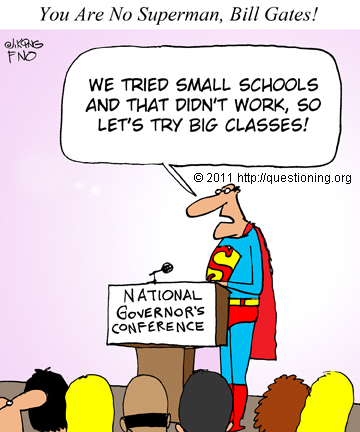| Research Cycle |
|
|
|
| Vol 9|No5|June |2013 | |
Challenging Assumptions and
Conventional Thinking
Each of us must learn to challenge expectations, assumptions and conventional thinking in order to fashion a life for ourselves that is what the French might call "sympathique." I am not sure we have a word in English that matches the French, but perhaps "fitting" comes close.
I remember reading a poem by Amy Lowell, Patterns, when I was a teenager that described a woman caught in the trap of social conventions who wants so much to embrace her lover before he goes off to war but is held back by stiff brocade, patterns and social expectations. He dies before they can marry and before they can embrace or kiss.
Bob Dylan's song "Love is just a four letter word!" directly states the theme of this article. If we end up trapped as Amy Lowell's character above or we surrender to such conventions, we can only blame ourselves.
Each of us may fashion a life that is bold, soulful and sympathique. We do not have to succumb to either conventional wisdom or expectations. And schools may help students to understand these choices, often by asking them to consider poems like Lowell's Patterns or Frost's The Road Not Taken.
Looking back, I was fortunate to have great teachers who made sure I would read poems that might protect me from becoming George Babbitt or Gordon Gekko. But it is also possible we will surrender like the pieces of a jigsaw puzzle who are told where they belong like the piece in the song below.
We are no longer puzzled and free to explore. Challenging Conceptions of Age and Generations When we are young, we go to a bar and they ask for our ID. They question our age. "Are you old enough?" "Are you legal?" In this article we explore the idea that increased longevity is upending cherished notions of old age, middle age and retirement.
Whether you are 25 or 65, the society may try to tell you what it means to be 25 or 65. You may be told that after 50 women or men will no longer find you attractive. You may be told that you and all your age-mates are lazy, boss hating good-for-nothings. We should heed the lyrics of "Free to be you and me!"
|
Reality just isn't what it used to be, as Beth Orton sings . . .
Later she adds, "The best part of life, it seemed, was a dream." Lyrics from "Best Bit" on her album Pass in Time (2003) Those who work at tedious jobs may welcome the chance to step off the assembly line and stop punching a clock. So many work lives are filled with mind numbing tedium. But good health and mental acuity argue for continued productivity, if not in the regular work place, then in some community service that is full of import. |
||
Defying Age?Is this a matter of defiance? of denial? Should we merely "pass and be forgotten with the rest" as the (Yale) Whiffenpoof Song suggests?
Olay puts "Age Defying" on the bottle. Is it that simple? We buy a bottle, spread the white lotion on our skin and defy age? Defy death? Prolong life? Hide the wrinkles? Erase the wrinkles? The worry lines? The worries? What an intriguing culture. Beauty is only skin deep? Or in the eye of the beholder? Or in the bottle? Defiance seems unhealthy. But perhaps defiance is better than surrender. Collapse. Defeat. Retreat. Definition is better than defiance. We can define what it means to be 21, 35, 55 or 68. Not for the crowd. Just personally. We define by questioning and creating. We take off the corset of Lowell's poem. We refuse the patterns. We define our realities. Do I dare?
T.S. Eliott's poem, The Love Song of J. Alfred Prufrock, poses the question dramatically.
She was a woman acting like a man. She was disturbing the universe. And she died for her transgressions. Her big sin? Impropriety? Or turning the tide of war?
Defining Age and Life StagesThe main point of this article is the importance of individuals questioning conventional thinking and conventional definitions. If we think for ourselves, we define our lives boldly. We "Do not go gentle into that good night!" as Dylan Thomas wrote. We contest the glib thinking and idiocy that often emerges as conventional wisdom. Pundits are fond of lumping all people from one generation into types. We have Baby Boomers and Generation X. The pundits indulge in rarely challenged stereotyping. Following Generation X, we have what is now called The Milennials. While many have little positive to say about this generation, careful research groups like Pew Research are reasonably generous in their portrayal. In 2007 CBS produced a number of insulting shows that pretty much slandered that generation and blamed their problems on Mr. Rogers.
This article is not about old age. It is about stereotyping, ageism and the damage done to any of us by lazy thinking. Whether we are 25, 45 or 65, the culture may try to tell us what we are supposed to do and what we are supposed to be.
Posing as intellectuals and thinkers, CBS had found a crowd of pundits who were eager to cash in on what was little more than grotesque stereotyping and lazy thinking. None of us are captives. While a generation may have some tendencies and shared traits, none of these demand obedience. We have the power to step outside the stereotype and create our own realities. Just what is retirement and who wants it? When I graduated from university, conventional wisdom pointed toward a long career followed by retirement at something like 65. Back at that time, many looked forward to a lifetime of employment by one corporation or organization. At the end they could expect a comfortable retirement. But many things changed. Some found themselves hopping from job to job. Some found themselves abandoned by employers who disappeared into mergers. Others chose an independent path. It was not unusual for some to taste three or four different careers. The time-honored tradition of comfortable retirement programs was replaced by an almost savage discontinuation of such support — a trend that continues today as voters in some states have rebelled against the costs of public employee pensions and benefits. According to some surveys, a greater percentage of elders are planning to keep working in some way past 65. With life expectancy increased to 80 or more, a surprising 20% of affluent Americans say they intend to keep working until 80, according to a Wells Fargo study reported by Forbes. Many of the articles and studies exploring this phenomenon focus on the financial reasons for continued work, noting the influence of the recession on savings and retirement income. But the issue raised in this article is the value of redefining the final two decades of life as long as physical health, mental acuity and productivity are intact. Under the old definition of this life stage, it was a time to get out of the way. A time to step away. To make room for the young. Underlying some of these messages was the belief that performance fades during this life stage. While it is true that most older runners are slower than they were in their thirties or their twenties, many elders find their mental functioning as sharp as ever, and sometimes the sharpness is enhanced by years of experience. Sagacity is something the culture should prize, not dismiss. Faux Educational Reform and the Passage of Time The retirement or death of progressive educators has made it all too easy for repressive reform ideas to flourish. Current notions of educational reform coming from the White House and non-educators like Bill Gates are wrong minded and damaging. The focus on test scores as a measure of teacher performance is simple minded. Sadly, the progressive movement of the 1980s and the 1990s has been replaced by a factory approach to schools that is damaging to children. There are few progressive voices left challenging the ill-considered change strategies advanced by both political parties. Some of this silence results from the retirement or death of leading thinkers of my generation — the progressive educators of that period. Figures like Ted Sizer, who have passed away. But then we have leaders like Deborah Meier, born in 1932, who stay in the game and fight for good values. Read her "Education advice to Obama" published in the Washington Post. You can also read her blog at Education Week. In addition, fortunately, we have new generations coming along like Ted Sizer's daughter, Lyde Sizer, who teaches at Sarah Lawrence and was a speaker at an April 2013 conference the — Faces of Progressive Education in the 21st Century: Infancy through Birth conference. She spoke on the same panel with Deborah Meier, "Challenges and Opportunities for Progressive Public Education" — In keeping with the theme of this article, which is the importance of challenging conventional wisdom, we need progressive educators of all generations to stand up to the repressive change strategies being applied to American schools as well as many schools in places like Australia where the left wing and the right wing have agreed upon high stakes testing as the prime strategy for school improvement. Why Wait
|
||
Copyright Policy: Materials published in The Question Mark may be duplicated in hard copy format if unchanged in format and content for educational, nonprofit school district and university use only and may also be sent from person to person by email. This copyright statement must be included. All other uses, transmissions and duplications are prohibited unless permission is granted expressly. Showing these pages remotely through frames is not permitted. FNO Press is applying for formal copyright registration for articles. |




 There are so many companies selling "age-defying" products to the so-called Baby Boomers.
There are so many companies selling "age-defying" products to the so-called Baby Boomers.
 No matter what you think about Joan of Arc, she was obviously a woman who rocked the world and resisted the norms of her times. One of her great sins in the eyes of the (English) church at the time was dressing like a man.
No matter what you think about Joan of Arc, she was obviously a woman who rocked the world and resisted the norms of her times. One of her great sins in the eyes of the (English) church at the time was dressing like a man. When I first listened to the CBS nonsense about Milennials, I was astonished. I knew a dozen young people in Bellingham that were working full time while studying full time. They were paying their own way through university and none of them resembled the nasty profile offered up by CBS.
When I first listened to the CBS nonsense about Milennials, I was astonished. I knew a dozen young people in Bellingham that were working full time while studying full time. They were paying their own way through university and none of them resembled the nasty profile offered up by CBS.